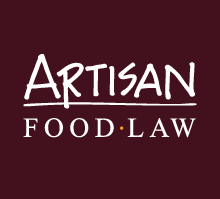Local food – it’s not simply a question of miles
The other day the Cambridge News carried a piece headed: ‘The 30-mile diet: eating local, eating green’. One of the latest of a number of similar events that have taken place around the country in recent times. Whilst I admire such initiatives I trouble a little that we should not lose sight of the true value and meaning of ‘local food’.
Whether it’s 10, 15 or 30 miles, these are all arbitrary figures. If we agree on 30 miles we are surely not really saying that the farmer who lives 31 miles down the road cannot be local? Food miles matter, but they are not really what we are talking about when it comes to local food, they have a place but are more to do with the mass road and air freighting of out of season produce from far flung corners of the world. What’s more, an arbitrary figure opens the door to the likes of McDonald’s who would not be averse to promoting potato chips as ‘local’ when sourced from the commodity farmer 29 miles down the road. Such ‘farmwashing’, as the practice has been coined, lets industrial food producers hijack ‘local’.
Slow Food has promoted ‘Earth Markets’. These markets are required to source products that represent a community and come from within a 40 km radius, although 10 per cent may be guest stalls. When we talk of local food we think of geography, but it’s not really distance we see as being important, rather it is a sense of community and the connection we have with the farmer who produced what we are about to enjoy. It is local because we have knowledge of the producer, confidence in the provenance of the food and an appreciation of the journey it took to reach our plate. There is trust which runs, like the proverbial stick of rock, throughout this relationship. In Slow Food terms, the consumer is a co-producer. Local food seen in this way makes an arbitrary distance somewhat redundant as a defining characteristic and ‘local food’ cannot be hijacked.
Jason Foscolo, a thoughtful US attorney specialising in support for small scale farms, proposes the idea of a ‘social distance methodology’:
““Local” should define a relationship, an information loop between a producer who knows her customer and a customer who knows something about how the food is made.”
This approach has more value and meaning to offer. Whether we like it or not, descriptors such as ‘artisan’, ‘natural’, ‘local’ and others we employ are all terms being hijacked by the industrial food processors. We can take ownership of them if we articulate clearly what they really mean and define them on our terms. We can have a rule of thumb about how far food can travel to qualify as local food, but let’s not get hung up about it. It’s not the distance it’s the connection, the human relationship and sense of community that matters. It may be harder to define, but we all recognise it when we see it.





